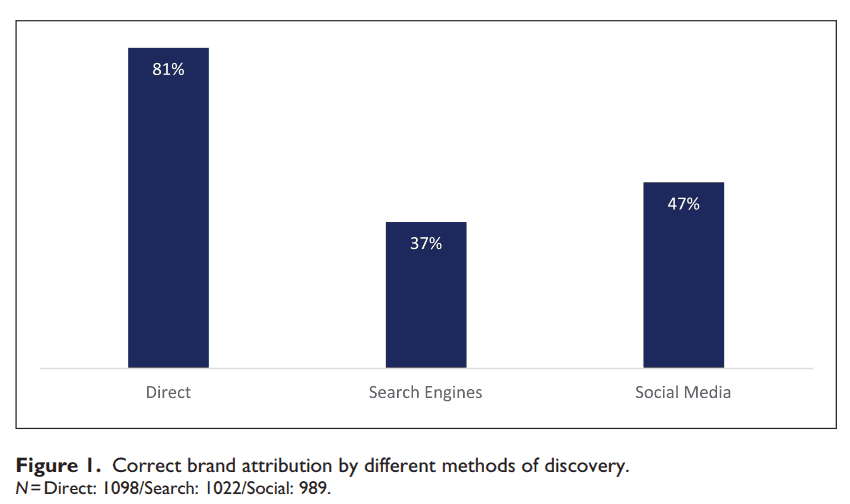
The growth of social media and other news aggregators over the last few years has significantly changed the nature of online news consumption. According to the 2018 Reuters Institute Digital News Report, 65% of online news users across 37 countries prefer to get their news from search engines, social media or news aggregators – an astonishing number.
A recurrent question in this context has been whether this affects people’s perception of where they actually get their news from. After all, news from different brands shared on Facebook’s Newsfeed or on Twitter pretty much look the same on these platforms. In our recent research, we tried to address this question, examining whether people remember the news brand they used when accessing news directly and via the most popular side-door routes to news: search engines and social media.
Users Can Rarely Remember the Source of News on Social Media
To examine whether people remember which news brand they used, we used YouGov’s panel PULSE that allowed us to track the browsing behavior of approximately 3000 consenting individuals in Britain for a month during spring 2017. A few hours after they clicked on a news story, we surveyed our participants asking them to identify the news outlet they had used to read the story.

The results showed that in 81% of the instances where people went directly to the website of a news organisation, they could correctly identify the news brand they had used. However, in cases where people consumed news after using a search engine to find it, only 37% could remember the news brand they had used. When people accessed news after encountering it on Facebook or Twitter, only 47% could correctly identify the news story they used.
When we looked at factors affecting correct brand attribution, we found that people were much more likely to remember the news brand they had consumed if they had visited the brand they usually get news from via any gateway. Younger news users were more likely than older ones to correctly identify the news brand they encountered via social media. Interestingly, whether individuals visited a legacy or a digital-born outlet did not seem to matter when it came to remembering where they got their news from.
Important Implications for News Organisations
So what to make of our findings? For one, our results have important implications for our understanding of trust in news as well as for the business models of news organisations. Previous research has already pointed out the importance of brands for how people navigate news and how they assign trust to news stories. If this link between the user and the brand is weakened, as seems to be the case, then we might expect that trust in news brands is weakened as well.
In addition, news outlets without much of a brand value might find it more difficult to survive in an information environment slowly but constantly moving towards paid-for online news – an environment in which user loyalty and brand recognition are key for monetisation. If fewer visitors to a news brand can remember that they’ve read one of the news stories, it could be harder to find paying customers. Finally, in an environment where news brands appear to matter less, it might also be easier for disinformation to be spread – an altogether more disconcerting idea.
The full paper “News brand attribution in distributed environments: Do people know where they get their news?” was published in New Media & Society and can be found here.
You might also be interested in What Makes A Journalist Popular On Twitter?
Sign up for the EJO’s regular monthly newsletter or follow us on Facebook and Twitter.
Tags: Digital Journalism, digital news report, Facebook, Journalism, News brands, News consumption, news organisation, Reuters Institute for the Study of Journalism, Social media, Trust in News, Twitter














































